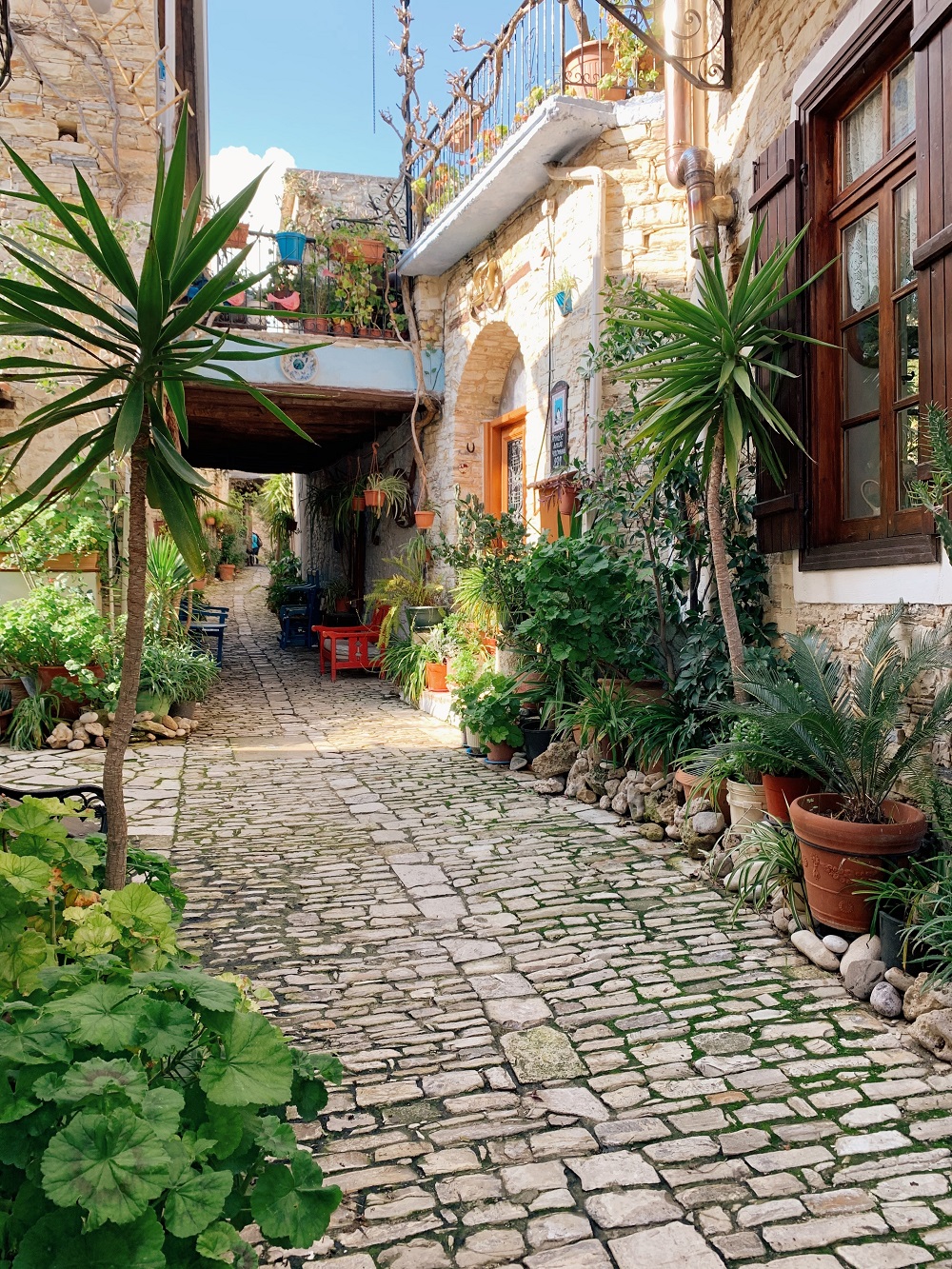American friends, especially American friends with careers and small children in the US and who do net benefit from a deep family network for 24-hour support, I am here to tell you: there is a different way.
Sure, this is a way that I would have gently scoffed at prior to 2016, with a dry gargle, proud of my administrative/managerial skill-set honed after years of student council, working professionally, and managing staff and offices.
“I can do it,” I said. I know I said this.
“You just have to be organized.”
Other pieces of advice I was given by women of all ages, before Victor was born:
“Lower your standards.”
“Decide what to cross off your list of what you want.”
“You are about to make some hard choices.”
I am sure I gave this advice to my peers in the same boat. I gave this advice in earnest. I meant well. I am a product of my culture. This culture demands a significant amount of personal organization, high achievement, and self-blame for both the stress of daily living as well as any and all failures, perceived and real.
In the US, we did manage after we moved back from Arezzo in 2013. We went to the park, entertained, did our grocery shopping. We ate lovely dinners that we made. We had someone come clean the house every other week for a morning. I was pregnant almost all of 2014 with Eleanor, and then in the last two months of the year she was a newborn.
This was when the wheels started to come off.
Even as I was working from home, with a much more flexible schedule than I had in my prior incarnation as a middle manager on campus, we struggled and argued to get our day-to-day accomplished. The endless tide of dishes, laundry, meals, groceries, breastfeeding, diapering, sleep deprivation, poolcare, lawncare, organization. I made bread for panini, I was the queen of the crockpot and making good use of leftover shanks from our grilled meals. I was thrifty. I had a good head on my shoulders. I had cell memory of scarcity and shrewdness. And yet. With two full-time jobs, a baby, a child in first daycare, and then preschool, we struggled. And there were two of us. And we were competent. And we got along.
People advised us to not worry about the house or money, to just enjoy our children while they were little. But how? I screamed inside.
How could we do so when the kitchen was piled with dirty dishes harboring small lagoons full of indiscernible flotsam, there was nothing ready to eat in the fridge or pantry, and there appeared to be at least three, maybe four loads of laundry growing in small mounds in our hallway? When I was not wearing clean underwear, couldn’t remember the last time I’d had a hot shower, had mossy teeth? Oh, sure, just enjoy everything. Enjoy this time. Yep. Enjoy it to the hilt.
Money got tight, then tighter. As our incomes stagnated in Oklahoma, we found ourselves pinching to make ends meet, dipping repeatedly into our rapidly shrinking cash savings just to make it through the months. We started completing our regular shopping runs at Walmart, when you paid online and then drive the store and they loaded it into your trunk for you while your children screamed and wondered what was going on. I bought a lot of our cleaning supplies at the dollar store. My parents helped us with a shockingly high and uninsured dental expense for Victor.
I had to do better, I thought. There had to be a way more organized to accomplish all this, I cried as I pumped breastmilk in my home office between conference calls, stuffing loads of laundry into our washing machine on breaks, shoving into the dryer on another, and folding it at some later point.
Don’t even get me started on our feline situation at the time. It was not pretty.
When we arrived in Firenze last year, the first question from people who understood the lay of the land was, when are you going to get a tata?
A tata? isn’t that what Mad magazine calls boobs? What are you talking about?
A tata, they said impatiently. Help. Help around the house.
Oh, no no no, I said. We are American. We can do this.
I received pitying looks in return.
Anyway, there is no way we could afford such a service. We are hardly bluebloods, on the search for a new French governness.
 |
| A nanny? Preposterous. We are hardly nobility! |
A colleague of Jason’s had a tata whom they no longer needed as much, as their two daughters were a bit older, and the older one in particular was now a highly competent thirteen-year-old Italian girl, skilled in the arts of toddler care with an adult close by.
“Please talk to her,” they said. “Please. We will send her to your apartment to talk to you.” The colleague gave me a worried look, concerned that we would even consider doing this on our own.
I was not sure what to expect. Our cleaner in the US received eighty or a hundred dollars or more for a morning of cleaning. Our babysitters received ten or twelve dollars an hour strictly for childcare. I received worried and/or scornful looks when I would beg the babysitters, if you see that the dishwasher looks full, or that the washing machine has completed its cycle, can you please just look and do the next step? I am sure I looked crazed and sounded desperate. These were the months when I skipped showers, dental hygiene, and clean undies on a regular basis, what with kid care and the other minor concern called professional employment. The division of household labor is strict and assumed in the US. A sitter sits. A cleaner cleans. A pool guy does the pool. A lawn guy does the lawn. There is a handyman. And dishes and laundry? You’re on your own, friend. Only the 1% or people in Los Angeles have such help. In America, the dishes and laundry are done by the people who dirtied them, every time.
I talked with an American friend who has a tata. She has been married to an Italian for years, and they live in Firenze with their two children, of similar ages to ours. Court is a hyperorganized dynamo, and her husband is a similarly attentive stay-with-kids father who does benefit from a robust Italian intrafamilial support system.
The tata, she explained patiently, would do all that needed to be done in the house. No division of labor. The tata looks after the children first, but if that particular situation is under control, she will quickly switch to other tasks in the house, such as tidying, grocery shopping, meal preparation, all aspects of laundry (stain treatment! folding! ironing – IRONING), housecleaning. This concept seemed incredible to me. If they need a tata, I thought – then we need a tata. I am not saying I operate in Italy at the same level as Court, but her model is clearly aspirational, and she is a person who in many ways is much like me.
We met with Sreelethika, and her cousin, Nandinka, both from Sri Lanka. They came to our house on a very formal call. Sreeleethika was warm, huge-eyed, and smiling; she had been the tata of the colleague. She lived around the corner from us with her husband and their older daughter. Her cousin was shy. The cousin was the one seeking work. After they left, we said, too bad it is not her sweet cousi
n with the big eyes and the friendly warm manner who wants the work.
But surprise! In fact it was the personable one who wanted the work!
We made arrangements for her to start as soon as possible.
At first, it felt awkward. For the first few months I had to put some thought into reigning back. Sree was a professional, after all. She had been performing the offices of a solid tata for two Italian families before us, and she knew the drill. Come to apartment at three, tidy up, assess grocery situation. Make note of grocery needs. Transfer laundry and dishes to the next step as needed. Pick up kids from school on bus. Bring children safely home, and install them in house with after school snacks. Tidy a bit more, perhaps iron a shirt, clean a bathroom, and prepare dinner. Jason and I typically arrive home after 6, close to 6:30, and Sree finishes dinner while we check in with the kids for 45 minutes or so. Sree sets the table, puts hot dinner out, wishes us a good evening and slips out the door.
It is incredible. It is a total game changer. And the going rate for this kind of help? 12-14 euros per hour; we have Sree on an official contract. She receives all paid holidays and paid leave. It counts toward her eligibility for Italian public healthcare. She gets paid more for more hours, or for the occasional late evening as work requires. She is often able to assist with irregular schedules due to sick children.
Sree has gone above and beyond for us. We adore her. She began to cook curries for us after we begged her; she messages us helpful hints for keeping our children healthy (“make sure they are wearing socks today; it’s cold,” “don’t run that fan in the apartment when Victor has that cough.”) She has our grocery list and dishes and laundry down pat. She messages us when the table wine runs out (“vino finito!”) Did I mention she sets a hot dinner out for us every weeknight, and often makes a double- or triple-batch on Fridays to get us through the weekend. On top of that, if she thinks we are not eating enough, she has been known to drop off hot food on Sunday – chicken biryani; savory spicy doughnut-like things. Last Thursday she baked a chocolate cake from scratch and when we arrived home after work, it smelled so good, so fresh, so homey, I thought I might cry.
What this has shown me is that, in a family of four, with two small children and two careers, there is at least 20 to 25 solid hours of work to do to keep everything running smoothly. I am sure more would be nice. But 200-250 euros per week is doable for us. She does not live with us. She is not full-time. But four hours a day with a tata job list goes a long way toward our sanity. And, given our decidedly healthier financial picture now that our careers have been separated from Oklahoma, we can afford this new budget line item. (We also no longer have lawn care, pool care, a separate housecleaner, OU health insurance, Oklahoma grocery prices, or a cat unironically named Bill. And Eleanor is out of daycare now and in preschool, which means her monthly tuition has plummeted about 450 euros.) Quality of life is way up and costs are actually down.
There is still plenty to do to keep the household running. Jason and I are not fully liberated, nor would we want to be. We are hands-on parents. But to have a competent, paid professional in the service of our good health and smooth function? Who wouldn’t want this?
A couple more notes on tata culture:
I was speaking recently with an American friend of mine, another professional mom with a daughter aged 9, married to an Italian. She lives a bit out from Firenze, and when I recounted to her what we’ve got set up with Sree, she sighed heavily, and said, “That’s Firenze. I could never get that in Pistoia.” The urban population here, and economic base, and diversity of immigrants and expats, create a better market for these types of employment contracts.
Last night Vic and headed out to Santo Spirito on my bike for a playdate (Vic chirping from his back seat, “sometimes going away for an hour can feel like a holiday!”) The group that met there were all American academics and their partners, here in Firenze on short-term teaching assignments for the many study abroad programs in the city, all with small children. They are all recently arrived, and still muddling their way through the transition.
 |
| Sabato in Piazza Santo Spirito. |
I was chatting with one of the fathers, who was pretty Big Lebowski. It transpired that I had had a halting conversation with his wife, Sarah, on a public forum about the preposterous rate she was paying her babysitter for a very low level of service. One does not give up insider information, and especially not names and numbers. As I explained to him and his pregnant wife in person what our tata does for us (and apologized for my online reticence), I recognized the tears gathering in their eyes as identical to mine last summer.
“I need a fucking tata!” the husband said, pointing to his chest. “We need one for Sarah and the kids, and one for me!” He looked at his Negroni, then looked more closely at me. “Can you help us?”
Yes, friends. Yes, I can.



